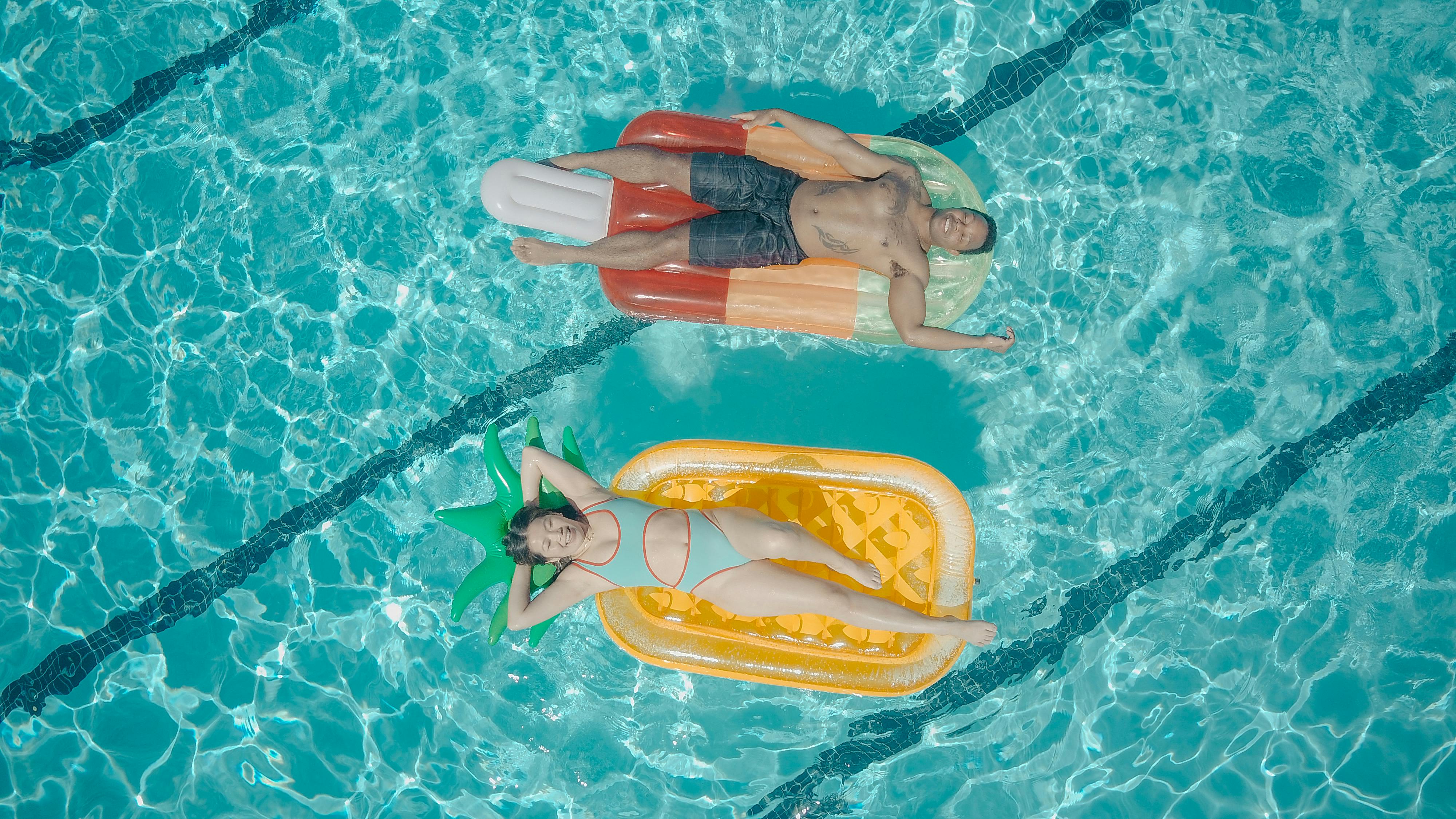Using distilled water in a humidifier is the best way to ensure that the humidifier runs at its most efficient level and does not become a breeding ground for bacteria or other microbes. If you don’t have access to distilled water, there are other alternatives you can use in your humidifier. In this article, we will explore what these alternatives are and how they can be used safely and effectively in a humidifier.Yes, you can use tap water for a humidifier. Tap water is safe to use in a humidifier, however, it is important to regularly clean your unit to prevent mineral buildup. Depending on the type of humidifier you have, you may need to use distilled water instead of tap water.
What Are The Risks Of Using Tap Water In A Humidifier?
Using tap water in a humidifier can pose a number of risks to your health and the health of those around you. Tap water contains minerals and other materials that can form a white, crusty residue on the walls of the humidifier, which can create an ideal environment for bacteria, molds, and fungi to grow. These contaminants may then be dispersed into the air via steam or mist, potentially leading to respiratory illnesses, allergies, and asthma attacks.
In addition to possible health risks, using tap water in a humidifier can also lead to mineral buildup in the unit itself. This mineral buildup can cause damage to the internal components of your humidifier over time and reduce its overall efficiency. It can also lead to clogs in the filter or nozzle that could prevent proper operation of your unit.
It is important to use clean water when operating a humidifier in order to avoid any potential health risks or damage caused by mineral buildup. Filtered water is always best for use in a humidifier as it will help ensure that any contaminants are removed before they enter your home
Tap Water Damage
Using tap water in your humidifier can cause serious damage, leading to expensive repairs or even replacements. Tap water contains minerals and other substances that can accumulate in the unit and cause damage over time, so it is important to know how to tell if your humidifier has been damaged by using tap water.
Signs of Damage
One of the most obvious signs of damage is a decrease in performance. If your humidifier is not working as well as it used to, chances are that there is something wrong with it. You might also notice that the water tank needs to be refilled more often than usual or that there is a strange smell coming from the humidifier itself.
Maintenance Checklist
It is important to regularly inspect your humidifier for any signs of damage or malfunction. Make sure that all parts are clean and free from debris and check for any accumulation of mineral deposits in the tank or on other components. Pay special attention to the filter since minerals and other substances can easily build up inside it over time.
Professional AssistanceDistilled Water vs. Regular Tap Water
Distilled water and regular tap water are two of the most commonly used types of water, but they differ in their composition and applications. Distilled water is created by boiling the water and collecting the steam, which leaves behind any dissolved minerals or contaminants that were in the original tap water. This makes distilled water safe for drinking and other applications where chemicals or contaminants could be an issue. Regular tap water is simply treated drinking water that has been processed to remove any harmful bacteria or pollutants, making it safe to drink. It still contains some minerals, however, which can give it a slightly different taste than distilled water.
When it comes to daily use, many people prefer regular tap water for drinking and cooking due to its slightly mineral-rich flavor. Distilled water is often used for specific purposes such as making coffee or tea, where its lack of flavor can help bring out the natural notes in the beverage. It is also commonly used for medical purposes such as injections or mixing medications where its purity is important.
Overall, both distilled and regular tap waters have their own uses in day-to-day life depending on what you
The Benefits Of Using Distilled Water In A Humidifier
Using distilled water in a humidifier can have many benefits. It is helpful in preventing the growth of bacteria and other microorganisms, which can cause health problems. Distilled water also does not contain any minerals, so it will not leave behind any mineral deposits on the humidifier, which can reduce its effectiveness. Additionally, distilled water does not create any white dust, which can be present when using tap water.
Using distilled water in a humidifier helps to keep your air clean and free from impurities. Distilled water is also free from chlorine and other chemicals that are often added to tap water for purification purposes. This means it will not cause any irritation to your eyes or skin when used in a humidifier.
Distilled water helps to improve the efficiency of your humidifier by helping to keep it clean. As it contains no minerals, it does not leave behind any deposits on the interior of your humidifier that could reduce its efficiency over time. Additionally, using distilled water helps to ensure that the humidity levels remain stable as there are no impurities or minerals present that could interfere with this process

Is There An Alternative To Distilled Water For A Humidifier?
Humidifiers are beneficial to our health, as they help maintain a healthy level of humidity indoors. However, the water used in them should be free from minerals and contaminants, which is why distilled water is recommended. But if you don’t have access to distilled water, there are alternatives that you can use in your humidifier.
One of the most common alternatives to distilled water for a humidifier is boiled and cooled tap water. Boiling tap water removes minerals and other impurities that could otherwise clog up the device or cause other issues. To use boiled and cooled tap water in your humidifier, simply bring it to a boil and let it cool completely before using it in the device.
Another option is filtered water from a reverse osmosis filtration system. Reverse osmosis systems are designed to remove all types of contaminants from the water, so it’s suitable for use in humidifiers. It’s important to note that you should still change the filter regularly if you’re using this type of system, as many types of filters need regular maintenance.
You can also
Making Your Own Distilled Water for a Humidifier
Distilled water is essential for many humidifiers, as it helps prevent the accumulation of minerals and other contaminants in the unit. Fortunately, it is easy to make your own distilled water at home. All you need is a pot or other container that can hold boiling water, a metal bowl that fits inside the pot, and ice cubes. Here’s what to do:
Fill the pot with enough boiling water to cover the bottom of the metal bowl. Place the bowl in the center of the pot and then add several ice cubes to it. The ice will cause condensation on the sides of the bowl, which will drip down into it. The condensation is pure distilled water.
Allow the process to continue until you have enough distilled water for your humidifier. Be sure to turn off or remove any sources of heat from your pot once you are done collecting distilled water, as this will prevent any evaporated material from getting back into the distilled water.
Once you have obtained a sufficient amount of distilled water for your humidifier,
Minimizing Scale Buildup in Humidifiers
Scale buildup in humidifiers is a common issue when not using distilled water. It can cause blockages, reduce the performance of the humidifier, and even lead to leaks and other malfunctions. To help minimize scale buildup, it is important to use distilled water or a demineralized water solution in your humidifier. This will reduce the amount of minerals that can accumulate in the tank over time and cause scale buildup.
In addition to using distilled water or a demineralized solution, it is important to regularly clean your humidifier as recommended by the manufacturer. Regular cleaning will help to remove any mineral deposits that have built up over time. It is also important to empty and refill the tank with fresh water every couple of weeks, as this will help prevent any mineral deposits from accumulating on the tank walls.
Finally, it is important to always use fresh water when refilling your humidifier tank. Even using tap water that has been sitting for a few days can lead to mineral deposits building up on the tank walls and increasing scale buildup. Therefore, always use freshly drawn tap or distilled water for refilling

Conclusion
It is important to use distilled water in your humidifier to ensure it runs efficiently and does not cause any damage. If you don’t have distilled water handy, you can use boiled tap water as a substitute, but make sure you change it out regularly and check the filter for any buildup. At the end of the day, using distilled water is still the best option for your humidifier.
In conclusion, it is important to remember that using distilled water in your humidifier is essential for its optimal performance and longevity. While boiled tap water may be a suitable substitute in a pinch, it is not as reliable or effective. Therefore, try to make sure you always have some distilled water on hand when using a humidifier.

